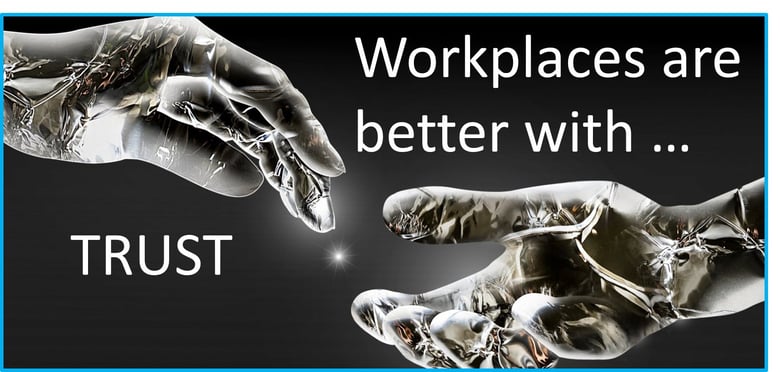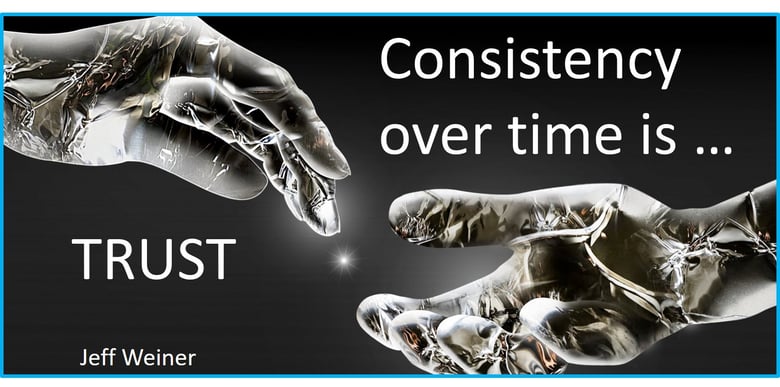We all know the basic ingredients for high employee engagement:
A meaningful purpose, recognition, open communication, involvement, personal growth and some autonomy in performing our work.
But all of these don’t work if the basic ingredient is missing:

There is no team without trust.
I would go so far and proclaim the current highest corporate value is trust.
And if trust is not our highest value, if the most important thing to you and your company is not trust, you need to look again.
Aligning our words and actions is a key pillar for building trust in the workplace and, ultimately, for an organization’s success.
We often find employees say that what leaders say and do has the most impact on their perception of an organization.
When there is a disconnect between a leader’s words and actions, employees are less likely to become engaged and committed to the organization.
Now why should this only apply to leaders and not everyone else at work too?
We can’t participate fully at work, or anywhere else, if we don’t have trust among colleagues.

Trust between people, especially when there is a power imbalance like at work, improves our lives, our relationships and our society.
Trust is not rapport.
Trust is not team-building.
It’s not about getting people to like you.
And it’s not about getting people to just “feel good” about you or the company.
Trust is our intentions and our behavior. It’s making it clear why we’re doing something, being honest about it, and then following through with it - consistently.
Studies show expecting others to be untrustworthy creates a self-fulfilling prophecy. We assume they’ll behave badly, so we stop trusting, which means we withhold effort and create a downward spiral.
It’s not surprising that work teams with just one bad apple experience performance deficits of 30 to 40%.
Once trust goes, everything goes.
Trust has pre-existing and inherent value.
We have to start by believing in trust as an a priori good. Only then can we seek to build fruitful and fulfilling relationships capable of withstanding challenges, tensions and even mistakes.
Building trust requires openness, communication and meeting others literally and figuratively.
We can’t do that if we’re avoiding conversations.
Now how to have conversations with your people when they are mainly working on-the-go, have no desks or a part of your disbursed frontline workforce?
You can't be everywhere at the same time. Unless you utilize modern communication technology like your own in-house communication platform.
In case you want to learn more about the practical approach to building a culture of trust at work that is grounded in science and tested in real organizations do check out:
Trust Factor: The Science of Creating High-Performance Companies by Paul Zak
TED Talk: Paul Zak on Trust, Morality and Oxytocin



